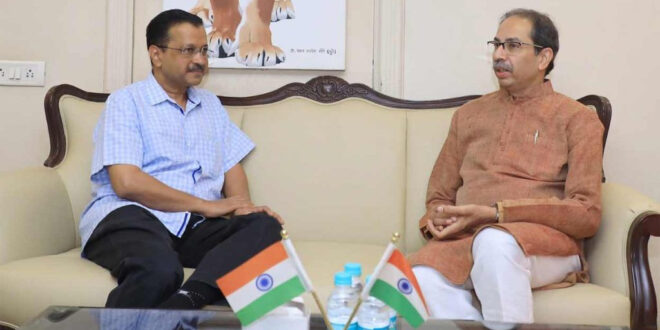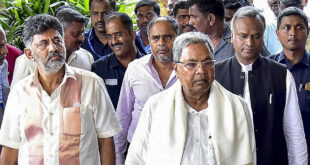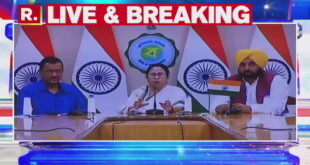Delhi Chief Minister Arvind Kejriwal is set to hold meetings with senior opposition leaders Mallikarjun Kharge and Rahul Gandhi in a bid to garner support against the central government’s recently enacted ordinance. Kejriwal aims to unite opposition forces to challenge the controversial move, which has raised concerns about the erosion of democratic values and the centralization of power.
The ordinance, titled the “National Capital Territory of Delhi Laws (Special Provisions)” Ordinance 2023, has drawn sharp criticism from Kejriwal and his Aam Aadmi Party (AAP), who argue that it undermines the autonomy of the elected Delhi government.
Kejriwal’s outreach to opposition leaders reflects a broader effort to rally against what is perceived as a threat to the democratic fabric of the country.
Kejriwal is scheduled to meet Mallikarjun Kharge, the Leader of the Opposition in the Rajya Sabha, and Rahul Gandhi, the former President of the Indian National Congress (INC), to discuss the ordinance and seek their support. These meetings are expected to further solidify opposition unity in challenging the central government’s policies.
The Delhi Chief Minister intends to convey the message that the implications of the ordinance extend beyond Delhi, affecting the principles of federalism and the rights of all states. Kejriwal’s meetings with Kharge and Gandhi aim to build a consensus among opposition parties to collectively address the concerns arising from the central
government’s actions.
Kejriwal, in a statement ahead of the meetings, said, “I am seeking the support of opposition leaders to join forces against this assault on democracy. It is crucial that we come together to protect the autonomy of states and uphold the principles of democratic governance. The ordinance sets a dangerous precedent, and we cannot afford to
remain divided.”
Mallikarjun Kharge, known for his strong stance against the ruling Bharatiya Janata Party (BJP), has already expressed his concerns over the ordinance and pledged his party’s support to fight against it. Rahul Gandhi, while yet to officially comment on the matter, has been critical of the central government’s policies in the past and has shown willingness to collaborate with opposition parties on key issues.
The meetings between Kejriwal, Kharge, and Gandhi hold significance as they could lay the foundation for a broader opposition coalition against the central government’s controversial move. The opposition leaders may strategize on ways to engage with the public, mobilize support, and explore legal avenues to challenge the ordinance.
The central government, on its part, has defended the ordinance, citing the need for effective governance and maintaining law and order in the national capital. However, the mounting opposition from various quarters, including regional and national parties, highlights the growing concerns over the erosion of democratic principles and the concentration of power in the hands of the Centre.
As the opposition leaders unite to voice their dissent, it remains to be seen how the central government responds to their collective efforts. The outcome of Kejriwal’s meetings with Kharge and Gandhi could set the stage for broader opposition coordination, marking a significant turning point in India’s political landscape.
The opposition’s joint fight against the Centre’s ordinance emphasizes the importance of constructive dialogue and collaboration to address challenges to democratic governance. As opposition leaders strategize their next moves, the unity displayed in their shared concerns sends a strong message about the need to safeguard the autonomy of states and uphold democratic principles in the country.
 India One News
India One News





